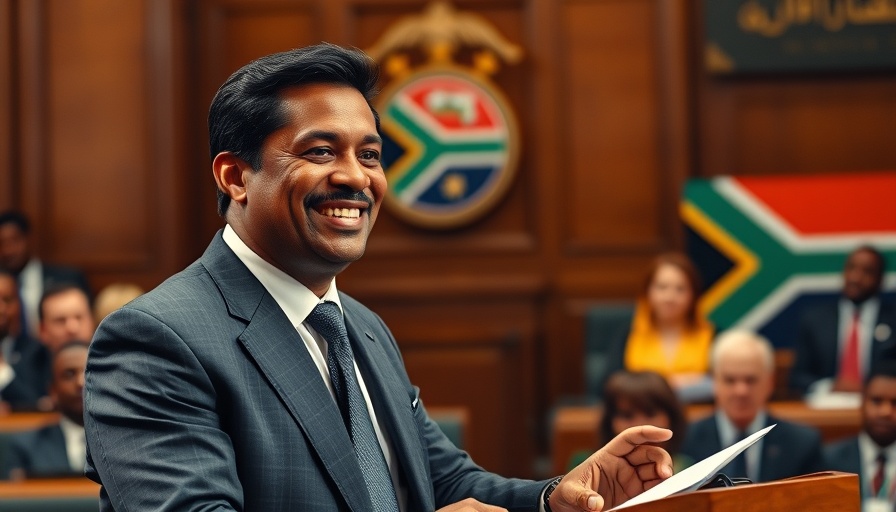
Ramaphosa's Bold Stand Against Critics of Privatisation
In a recent address, South African President Cyril Ramaphosa firmly rebuffed critics of his government's privatisation initiatives, reiterating their significance in combating rampant red tape hindering national growth. This vigorous defence comes amid mounting tensions surrounding the ANC's policies, with critics often characterising privatisation efforts as detrimental to state-owned enterprises (SOEs).
The Context of Operation Vulindlela
Operation Vulindlela, spearheaded by Ramaphosa's administration, aims to expedite economic reforms across various sectors. Recently, it has been praised for successfully dismantling barriers that impede efficient governance and service delivery. This initiative is pivotal in revitalising the beleaguered South African economy, particularly after the devastating impacts of the COVID-19 pandemic, which recorded substantial economic contraction and high unemployment rates.
Beyond Privatisation: A Broader Economic Strategy
Ramaphosa's endorsement of privatisation should be viewed against a broader economic strategy that aims to attract foreign investment and enhance service delivery. This approach is designed to bolster South Africa's returns on investment, particularly in light of growing international interest in the country's potential within BRICS and the African Union frameworks. Addressing national challenges such as load shedding and the Eskom crisis is also essential to create a more stable environment for investors.
Counterarguments from the Political Sphere
Politically, Ramaphosa's staunch approach has drawn criticism from numerous factions, particularly from opposition parties like the Democratic Alliance and the Economic Freedom Fighters (EFF). Critics argue that privatisation may lead to inequality and disregard public interests, promoting a profit-first approach that could alienate underprivileged communities. These concerns raise essential questions about the balance between private investment and public welfare, especially amidst rising service delivery protests and calls for land reform.
The Impact of Corruption Investigations
The spectre of state capture and ongoing corruption investigations loom large over discussions related to privatisation. Many South Africans remain sceptical of government intentions, fostering a climate of distrust that complicates the implementation of reforms. The Ramaphosa administration’s commitment to transparency must translate into tangible action to rebuild credibility and encourage public support for reforms.
Future Predictions: Navigating Economic Recovery
As South Africa navigates its post-COVID-19 recovery, Ramaphosa’s strategies could shape economic trajectories significantly. The focus on infrastructure development, alongside calls for digital transformation and renewable energy projects, underscore an intent to modernise the economy. However, the government must promptly address critical issues such as youth unemployment and gender-based violence, particularly given the heightened awareness in civil society about these systemic injustices.
Conclusion: A Call for Engagement
It is evident that South African politics are at a crucial juncture. As various stakeholders—government, the public, and private investors—engage in discussions regarding the future implications of privatisation, the need for a cohesive approach to address the nuances of governance is paramount. The dialogue surrounding economic recovery and service delivery must not only encompass economic objectives but also ensure that all citizens benefit equitably from these changes. The ongoing economic struggles, coupled with high crime rates and social challenges, necessitate an inclusive approach that resonates with the public. For professionals navigating this intricate landscape, remaining informed and involved is more critical than ever as South Africa charts a course toward prosperity.
 Add Row
Add Row  Add
Add 




Write A Comment